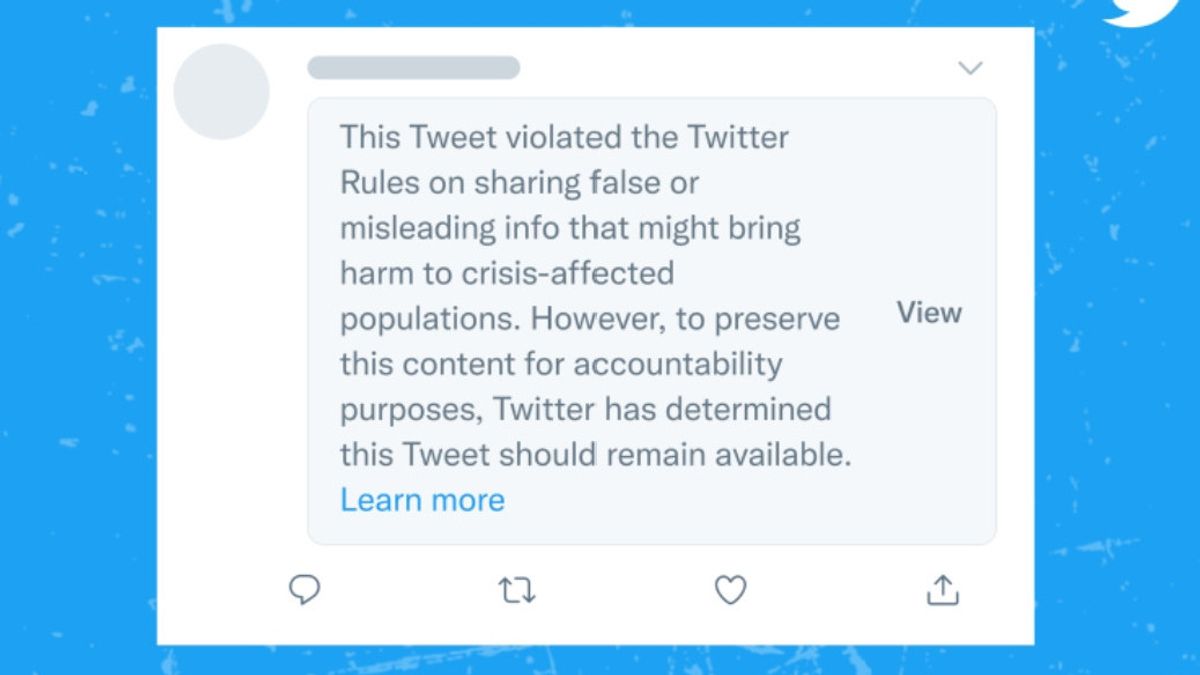
JAKARTA - Twitter has re-launched how to combat misinformation by presenting a crisis information policy. This is to ensure any misleading tweets are not amplified or recommended during a dispute or war.
But how to determine whether a tweet falls into the category of misleading? Here Twitter does not take any steps. Before setting the rules, the company will verify from credible public sources, including conflict monitoring groups, humanitarian organizations, open source investigators, journalists and others.
If the platform finds the tweet misleading, it will release a warning notice on the tweet, turning off the likes, retweets, shares, and linking to more details about the policy. These tweets will also stop appearing in timeline, search, or explore.
"As we expand our approach, we will enforce around other emerging global crises, informed by the United Nations Interagency Committee's (IASC) emergency response framework, and other global humanitarian frameworks," Twitter said in a statement. official.
The tweet will not be deleted, users who see the tweet with the warning only need to click on it to view the tweet. Previously, some of the warnings about elections or COVID-19 misinformation were simply notifications that appeared in the line below the tweet, rather than having them completely shut down.
Some examples of tweets that may be flagged under the new policy include false reporting of events on the ground, false or misleading accusations of war crimes, mass atrocities, or use of weapons, and false information about international sanctions, community response, or humanitarian operations.
Twitter also said it would prioritize adding alert notifications to viral tweets or posts from accounts that have a large following which may include verified users, state-affiliated media and government accounts.
That strategy makes a lot of sense, as tweets from prominent figures are more likely to go viral than tweets from ordinary people with 50 followers, but surprisingly many platforms haven't taken this approach.
According to Twitter, the first iteration of the policy will focus on misinformation surrounding the war in Ukraine, but a planned update will see the policy expanded to cover additional forms of crisis.
The English, Chinese, Japanese, Arabic, and French versions are automatically generated by the AI. So there may still be inaccuracies in translating, please always see Indonesian as our main language. (system supported by DigitalSiber.id)








